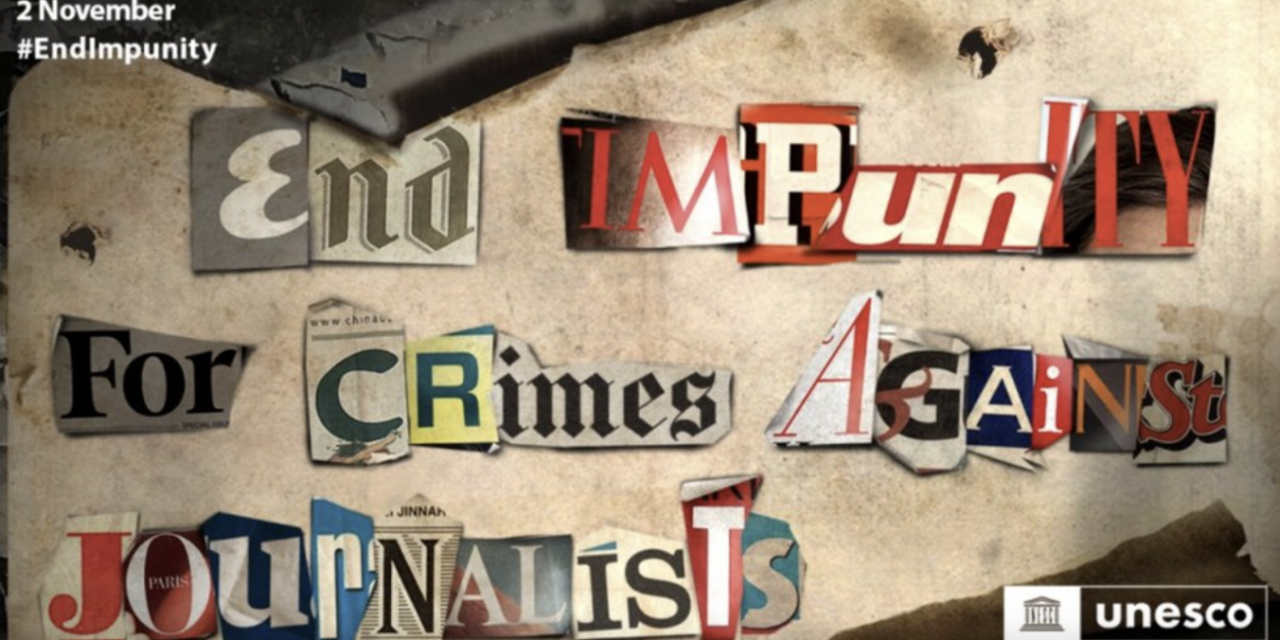This press release has been republished from the UNESCO website in connection to the commemoration of the 2021 International Day to End Impunity for Crimes against Journalists.
New statistics published show an 87% impunity rate for journalist killers. November 2, for the International Day to End Impunity for Crimes against Journalists, UNESCO and its partners are organizing around 20 events around the world, aiming to raise awareness on States’ obligations to prosecute not only killings but also threats of violence against journalists.
New statistics show in the past five years, UNESCO recorded 400 killings of journalists worldwide. The Organization has recorded an 87% impunity rate for perpetrators of journalist killings that took place between 2006 and 2020.
“Since 2017, the majority of these crimes have taken place outside of countries experiencing armed conflict – more than 60% of killings in 2020. In other words, journalists are not only dying in the crossfire of war – they are also being targeted for exposing wrongdoing and speaking truth to power”, said Audrey Azoulay, UNESCO Director-General.
The data set out in UNESCO’s World Trends in Freedom of Expression and Media Development: Global Report 2021/2022, to be published in December, reports that journalists continue to face countless threats – ranging from kidnapping, torture and other physical attacks to harassment, particularly online. Impunity levels for these other types of attacks against journalists are not known.
Women journalists are particularly impacted by threats, notably online. According to the UNESCO/ICFJ research paper “The Chilling: Global Trends in Online Violence Against Women Journalists” 73% of surveyed women journalists said that they had experienced some form of online violence and 20% said that they had been attacked or abused offline in connection with online violence.
Threats of violence and attacks against journalists contribute to a climate of fear for media professionals, and impact the quality of their journalism. UNESCO research has shown that constant threats deter journalists from pursuing controversial investigations, and encourage self-censorship. Threats can prompt journalists to cover less politicised topics, or to leave the profession or the country.
****
Visit the IDEI official webpage for information about all the events organized or co-organized by UNESCO within the larger framework of the implementation of the UN Plan of Action on Safety of Journalists and the Issue of Impunity.
Visit the World Trends in Freedom of Expression and Media Development webpage for information on the report and the findings related to the safety of journalists.
Media Contact: Thomas Mallard, t.mallard@unesco.org

